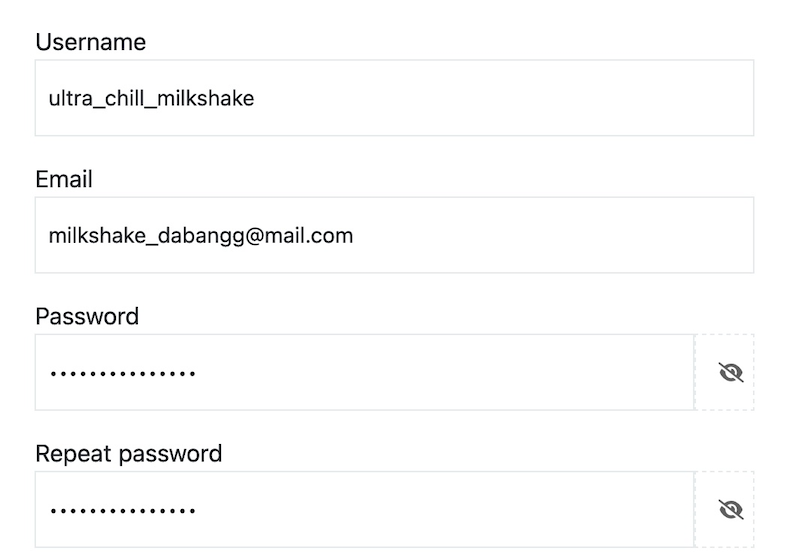Thank you to the 966 people who filled out the survey. And thanks also to the strangely numerous people who read all the questions and wrote to me about them but didn’t answer them. (Though: why?)
Many asked: Will the survey data be public? Unfortunately no, because I’m a big dumb idiot and didn’t say it would be public or give a chance to opt-out. So we’ll have to make do with summary statistics only.
So, first things first:
(“nan” means someone skipped the question.)
I asked this because I wanted to confirm my theory that extroverts would more often think they could beat me. And if we break things down by people’s extroversion score (I = strong introvert, E = strong extrovert) there’s a hint of that if you squint really hard:
But it’s clearer if we look at the conditional probabilities for each of the personality bins:
And here’s the mean, interpreting the answers as numbers (very unlikely=1, almost surely=5) along with a 95% confidence interval:
So… I declare this theory mostly confirmed.
You can do the same thing for the other axes (S/N, F/T, J/P), but there doesn’t seem to be much signal.
(I would wreck you.)
On life and death
At the beginning of the quiz, I asked about your birth month:
This was a crude form of randomization. Later in the quiz, those born in the first half of the year were presented with this scenario from a meme that was floating around a year ago:
For the following question, you and 1000 strangers are put into separate rooms. Each person must press either the yellow button or green button, subject to these rules:
- If >50% of people pick the yellow button, everyone lives.
- If <50% of people pick the yellow button, the people who picked the yellow button die and the people who picked the green button live.
There are tons of non-responders, because half of people weren’t offered the question. But those who did see it mostly picked yellow in the hopes of keeping everyone alive.
Meanwhile, those born in the second half of the year got an equivalent scenario, but phrased in a way designed to change your answer:
For the following question, you and 1000 strangers are put into separate rooms. In each room there is a small explosive pill. Each person must take the pill or not, subject to these rules:
- If >50% of people swallow the explosive, then nothing happens and everyone is fine.
- If <50% of people swallow the explosive, then all the explosives detonate and everyone who swallowed them dies.
Most people do not swallow the explosive in the hopes of saving others—instead they fend for themselves.
So if we compare these two questions:
-
28.8% of people always pick the “try to keep everyone alive” option.
-
37.1% of people always pick the “make sure I don’t die” option.
-
34.1% of people switch depending on everything is phrased.
And let’s not be too quick to criticize switchers! Remember the old philosophical problem, “Are you supposed to predict other people’s actions when you choose your own?” Either answer leads to serious problems. But if you say yes, then maybe the switchers are right?
On paying to free yourself of biological necessities
Most people think that eating is a net positive, despite all the costs, would pay a moderate amount to avoid the need to excrete, and would pay a sizable amount to avoid the need to sleep. Personally, I agree with all these sentiments. I wish I had more granular bins.
On personality
The sterotypical dynomight internet person appears to have an MBTI of Intx.
Though a fair number of people skipped this question—or the whole survey—and it’s easy to imagine how that choice might be correlated with personality.
On the nature of reality
People think having a tiny percentage of people live for 5000 years would chance society a lot, aspartame is not very bad, and abortion bans are hard to maintain.
On consciousness
Here I tested your patience by asking about way too many theories of consciousness. (Most people probably want to skim through these graphs.)
The most popular option is identity theory—which I find notable mostly for somehow managing to be even worse than full-bore eliminative materialism. Since I can’t emotionally accept that, I choose to see this as an endorsement of sensible materialism (“thinking is a physical process that is done by your brainmeat and in principle is fully explained by physics, etc.”) rather than actual psycho-crazy identity theory (“the feeling of seeing a red flower—the feeling itself—is in the same category as a pebble or tornado or whatever”) . I do this even though the phrasing of the question seems unambiguous.
On progress in consciousness
People think philosophy is less likely to yield progress on the nature of consciousness than AI or neuroscience, but maybe there won’t be any progress at all.
On ethics
People are friendly to utilitarianism, but mostly want to avoid the repugnant conclusion where the best universe is one with 10¹⁰⁰⁰ people who just barely prefer being alive to being dead. But there doesn’t seem to be wide agreement on how to avoid that, or what utilitarianism looks like in the real world.
On dynomight
(♡; This, kids, is the definition of sample bias.)
(That question was referring to this image.)
For the small minority of people who really want comments, please see the note at the end of this post.


Responses to some questions that were asked in the “additional wisdom” box
(Though wasn’t the idea was that you were supposed to give me wisdom?)
Are you and Matt Lakeman the same person?
No. I often wish it were otherwise.
Can you do a shoulder / knee / elbow reveal at 1 mil subs?
Yes, and as it happens I have magnificent articulations. At current pace, I will reach 1 million subscribers on 9 Sep 2150.
Are nut milks healthy?
I don’t know, but maybe best to avoid those with lots of added sugar.
What are you favorite home air quality monitors and purifiers?
For purifiers, I personally use a Cuboid and some FÖRNUFTIGs. But I’m sure there are many other good options—just choose something that’s been independently tested. For monitoring, I just use a VINDRIKTNING in the kitchen. They are known to be inaccurate, but the outdoor air is clean where I live, so my main concern is just catching big spikes of particles when cooking so I know when I need to open the windows. Also it’s cheap and IKEA is a small struggling company that needs our support.
You don’t really take the MBTI seriously, do you?
I do! I acknowledge that the Big Five is better, but only slightly so why not root for the underdog?
I’d be curious to hear your take on whether the world will be able to meet its energy demands and what if anything ought to be done about it.
I’m no expert on energy. (Though I do read Austin Vernon.) So I’ll just give my outside view on this question.
In general, I have a lot of faith in:
-
Technological development.
-
People’s ability to adapt to changing circumstances when they have incentives to do that.
And I tend to have less faith in:
-
The ability of large, diverse, weakly connected groups of people to coordinate without incentives.
-
The ability of large government organizations to choose winners when constituents can’t easily observe the process and give constant feedback.
-
Anyone’s ability to predict exactly how people will adapt to changing circumstances without actually changing the circumstances and seeing what happens.
When the Ukraine war started, I kept seeing journalists talking about how Ukraine supplies 6% of the world’s wheat, and with exports shut off, famine around the world was sure to follow. I thought this was quite silly, because people have options. Lots of food is grown and then fed to livestock, losing most of the calories before they get to people. Oats are cheaper than wheat. Lots of crops are turned into alcohol and burned in vehicles. I thought that there seemed to be a lot of slack in the system, and people really don’t like starving, so surely markets would reallocate things and prevent that? As far as I can tell, that’s exactly what happened.
So will the world be able to meet its energy needs? Without endorsing any view about the future of {battery technology, grid upgrades, real-time energy pricing, self-driving vehicles, rare earth minerals, future fossil fuel finds, carbon taxes, nuclear power, etc.} I say: Yes. People are very adaptable! If we had to, we cut our energy consumption by an order of magnitude tomorrow—it would just be painful. And it would be painful, but in the medium term, I bet it wouldn’t be as bad as it seems, because people are so good at adapting. But using huge amounts of energy is fun, so people will mostly keep doing that unless they’re forced to stop.
(Note that I’m not predicting that humanity actually will reduce energy consumption. That’s possible, but I think it’s also entirely possible that we figure out other ways to even larger amounts of energy, or that we just keep using fossil fuels, come what may.)
Like all great [sic] creatives, you need an editor. If you have one, consider a change.
Believe me, I know.
I’ve had a few experiences with “real” (good) editors and there’s no denying that they make things much better. It’s plausible that (me with my current writing skill) + (an editor) is better than (me afte practicing writing for the rest of my life).
A few people have even volunteered (or were conscripted) and helped edit a few posts (thank you), but proper editing takes a lot of time/experience/talent/effort and it just seems preposterous to ask anyone to do that for free.
I find myself wanting to know more about YOU.
xNTP.
You should floss more
Doubtful. But—speaking of ME—I use Italian floss that costs 4× normal floss (around $0.34 / meter). This feels insane, but the marginal cost is something like $0.10 extra per floss, and if you haven’t used Extreme Luxury floss before, trust me when I say it delivers more than $0.10 of utility. It’s so pleasant that “not flossing enough” becomes almost impossible. And I wonder if it might actually save money in the long term by reducing the need for dental work.
How can you believe that aspartame is harmless when regular aspartame consumers seem to be heavier than non-aspartame consumers?
Ah, the good-old aspartame debate (1 2 3 4 5). I believe this because :
A) I think that health-conscious people tend to avoid soda, of all types.
If true, this would create correlations between aspartame and obesity even if aspartame didn’t cause obesity. It could do that even if consuming aspartame (mildly) decreased obesity.
It’s useful to consider the opposite case. Take some activity that rich educated people tend to do, like drinking red wine. It’s easy to see how that might be correlated with positive health outcomes, even if drinking red wine isn’t actually good for you.
B) I think that people who are heavier tend to switch from regular soda to diet soda.
This could also create correlations even without any causal path from aspartame to bodyweight.
C) The metabolism of aspartame is very well-understood and seems to exclude the possibility of it causing obesity (or basically anything else).
D) In decade after decade of randomized trials—the only reliable way to eliminate confounding—aspartame consumption does not in fact cause obesity.
When you release survey results/whatever you’re doing with it please explain the Benedict Cumberbatch?
This is my greatest discovery—one that I am bitterly disappointed has not yet become a global meme. If you put BENEDICT CUMBERBATCH in a white sans-serif font on top of a photo of a goofy-looking animal, you will be enlightened.
I defy you to find any other sequence of 20 characters that produces 10% of the effect. And the power of the Cumberbatch goes deeper. I just picked the most boring word I could think of (“farmland”) and then chose the first picture I saw:

Do you see? Do you see the power?
(Ah right; I have data; you don’t.)
Makes me wonder - can you get oil from sperm?
I don’t know, but I’m flattered you would come to me.
On comments
(Update: kbin is dead, don’t go there, use lemmy instead.)
Some people asked that even if there aren’t comments on dynomight.net, couldn’t there be a designated “other place for comments (that is not Substack)”. So, as an experiment, I’ve created a “magazine” on kbin. This is approximately the same as a subreddit except better.
At least—it’s better in every way except that you don’t already have an account. And why suffer through 20 seconds of grueling effort to make an account if there isn’t already an active community? Which there isn’t, since other people are thinking the same thing you are.
So, to slightly increase the odds of solving this little collective action problem:
-
For this post, I’m disabling comments on Substack.
-
I’ve pre-populated the magazine with a bunch of favorite links.
-
I will extra-double try to respond to questions about this post, including perhaps looking up other statistics from the survey data.
-
If you have a blog (Or a project? A job opening?) that you think dynomight internet people might enjoy, you’re explicitly invited to self-promote.
-
Making an accountis easy. If you don’t like giving out your email,disposable emailworks fine. Thetermsandprivacy policyare so reasonable you’ll feel like they are agreeing to you.

So if you want to comment on this post (or whatever) go here.



















































































